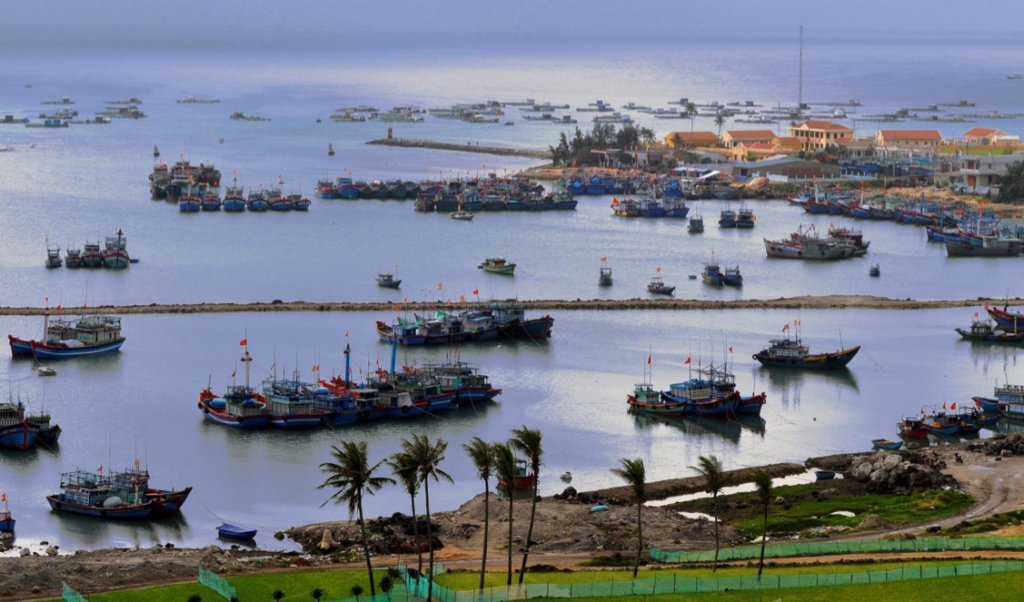First Overarching Study for South-East Asian Fishmeal Industry Provides Recommendations
 The Global Aquaculture Alliance (GAA) and IFFO, the Marine Ingredients Organisation, today released the findings from a joint-funded project that improves the understanding of Southeast Asia fisheries that supply raw material for fishmeal production. The report was produced by Duncan Leadbitter (Fish Matter Pty Ltd) after approximately 10 months of data gathering, using both publicly available information and in-country sources.
The Global Aquaculture Alliance (GAA) and IFFO, the Marine Ingredients Organisation, today released the findings from a joint-funded project that improves the understanding of Southeast Asia fisheries that supply raw material for fishmeal production. The report was produced by Duncan Leadbitter (Fish Matter Pty Ltd) after approximately 10 months of data gathering, using both publicly available information and in-country sources.
Petter Johannessen, IFFO Director General, said: “It is the first overarching study to look at the fishmeal industry, and its main sources of raw material supply, across Thailand and Vietnam. Through this study, IFFO, as a global organisation, has a significant contribution to make to help fill information gaps and support the development of best practices in fisheries management.”
The fishmeal and fish oil sector in South East Asia has grown significantly over the past fifty years but fisheries management practices remain variable in the region.
Duncan Leadbitter, project lead, said: “Although fishmeal and fish oil are a key feed ingredient for the region, information is generally lacking in terms of both fisheries and fisheries production. Asian nations are aware of the current situation and are actively moving to implement the reforms required to get their fisheries onto a responsible footing.”
The combination of there being large numbers of species in the catches coupled with previous requirements for using management techniques better suited to cold water fisheries means that effective management has been a technical challenge.
The global markets’ drive for certification of seafood product provides an opportunity for improved fishery management practices, and especially through the application of a Fishery Improvement Plan (FIP) approach. There are clear opportunities for FIPs in the region, but success is dependent on industry and government working together.
Andrew Mallison, Executive Director, GAA, said: “The aquaculture industry has an increasing responsibility in the future of global food security. Best Aquaculture Practices (BAP) certification ensures that seafood products come from facilities that are managed in an environmentally, socially and economically responsible manner.”
An integrated approach that engages industry, national governments and international organizations, is more likely to be successful in delivering positive impacts given the diverse and dispersed nature of the fisheries sector in countries across South East Asia.
The report makes a number of recommendations in encouraging the attainment of IFFO RS via the Improver Programme and maintaining an understanding of the developments in fisheries management in the region.
Recommendations*
Provide assistance to fisheries with regard to assessment processes
IFFO RS could finalise its assessment system for multispecies fisheries and provide a pathway to approval as soon as possible. The RS system, via the Improver Program, is the key mechanism for involving industry in supporting improvements in fisheries management. The RS assessment system needs to ensure that it can also cover species diverse, tropical purse seine fisheries.
IFFO and GAA could facilitate the process for fisheries to engage in FIPs, be it by providing information on FIPs in general and on fishery assessments and fishery action plans more specifically, by coordinating contacts and improving communications among stakeholders, or maybe even the establishment of a source of funds aimed at providing assistance to fisheries that want to engage in FIPs.
Share knowledge
IFFO and GAA need to maintain an up-to-date appreciation of developments in the understanding and management of tropical multispecies fisheries. There is a considerable degree of interest in this area and there are links to developments in approaches to fisheries elsewhere in the world.
GAA and IFFO could consider reviews of other countries that have similar fisheries that link to the farm shrimp industry. Examples include India, China and Bangladesh.
Develop further research
GAA and IFFO could consider outreach work to feed and other related sectors aimed at promoting formulated feeds as a mechanism for reducing the incidence of direct feeding of bycatch to species such as groupers, spiny lobsters, crabs, snakeheads etc. This would have both resource management and fish health benefits.
GAA and IFFO could consider evaluating the purse seine fisheries as these are common but their contribution to the fishmeal sector is unknown beyond anecdotes.
The structure of the industry and, especially the links with the food processing sector, is not well documented and a better understanding would be positive for industry development purposes but also important for understanding supply chains and traceability.
*Resource permitting
For further information, please contact:
GAA: Steven Hedlund
steven.hedlund@aquaculturealliance.org
+1-603-317-5085
IFFO: Veronique Jamin
vjamin@iffo.net
+44 (0)2030 539 195
Downloads
Infographic: the South East Asian report’s main findings
South East Asian Summary Report
Frequently Asked Questions



